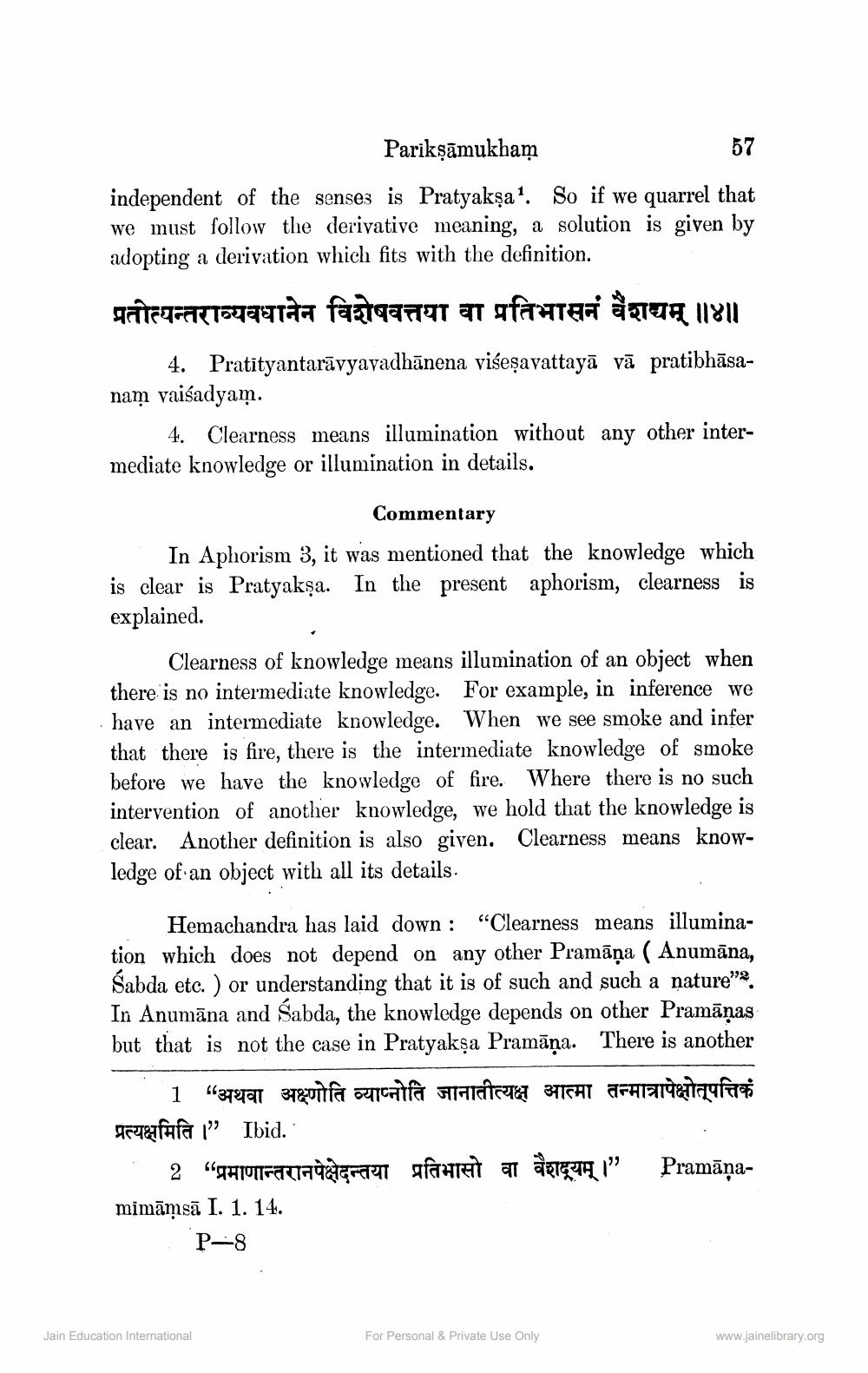________________
Parikşāmukham
57
independent of the senses is Pratyakşa". So if we quarrel that we must follow the derivative meaning, a solution is given by adopting a derivation which fits with the definition.
प्रतीत्यन्तराव्यवधानेन विशेषवत्तया वा प्रतिभासनं वैशद्यम् ॥४॥
4. Pratītyantarāvyavadhānena višeșavattayā vā pratibhāsanam vaiśadyam.
4. Clearness means illumination without any other intermediate knowledge or illumination in details.
Commentary
In Aphorism 3, it was mentioned that the knowledge which is clear is Pratyakşa. In the present aphorism, clearness is explained.
Clearness of knowledge means illumination of an object when there is no intermediate knowledge. For example, in inference we have an intermediate knowledge. When we see smoke and infer that there is fire, there is the intermediate knowledge of smoke before we have the knowledge of fire. Where there is no such intervention of another knowledge, we hold that the knowledge is clear. Another definition is also given. Clearness means knowledge of an object with all its details.
Hemachandra has laid down : "Clearness means illumination which does not depend on any other Pramāņa ( Anumāna, Sabda etc. ) or understanding that it is of such and such a nature”2. In Anumāna and Sabda, the knowledge depends on other Pramāṇas but that is not the case in Pratyakşa Pramāņa. There is another
1 "अथवा अक्ष्णोति व्याप्नोति जानातीत्यक्ष आत्मा तन्मात्रापेक्षोत्पत्तिकं Irteafara 1 Ibid.
2 "A raratat createn fahreit at deretti" Pramāņamimāmsā I. 1. 14.
P-8
Jain Education International
For Personal & Private Use Only
www.jainelibrary.org




